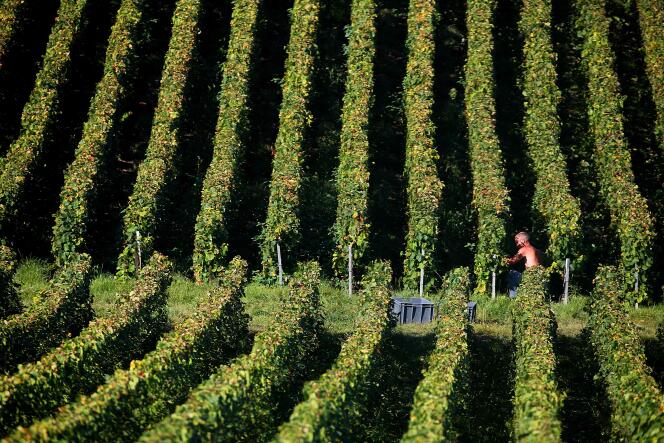


The justice system in France's Champagne region has taken up a number of cases linked to the grape harvest, which has just come to an end. In Châlons-en-Champagne, northeastern France, Deputy Prosecutor Céline Fassey confirmed the opening of two investigations into human trafficking. The investigations are about acts committed in Nesle-le-Repons and Mourmelon-le-Petit.
On September 8, a prefectural order in Mourmelon-le-Petit, southeast of Reims, ordered the closure of a substandard building housing 160 Ukrainian grape-pickers. In mid-September, the labor inspection department also discovered a building in Nesles-le-Repons where 52 workers of Malian, Mauritanian and Senegalese origin were being housed in substandard conditions.
In both cases, the prefectural orders noted "the presence of numerous makeshift beds; the dilapidated state; substandard and unsanitary conditions; the lack of cleanliness and disinfection; the disgusting state of the toilets, washrooms and communal areas; and the accumulation of fecal matter in the washrooms," as well as the risk of fire.
Videos seen by Le Monde support the testimonies of the workers who used to live at Nesles-le-Repons. The grape-pickers, who have now been rehoused, have not been paid. Initial evidence suggests that they were hired by service providers. In recent years, these intermediaries have expanded in the vineyard sector. This makes it easier to recruit workers who are increasingly hard to find, according to employers.
While most of them respect the labor laws, some companies are set up in the run-up to the season and take advantage of the high demand during this intense period. They use vulnerable people, often foreigners, who are ready to work at any price.
Around 120,000 people need to be hired over a two-to-three-week period to harvest the grapes. The working conditions required to harvest the precious crop are harsh, and even more so this year due to the extreme heat. Five grape-pickers died in September. "This proves that when we are faced with extreme conditions, the means that have been deployed are not sufficient for seasonal workers to be able to work in complete safety," said Philippe Cothenet of the CGT-Champagne union.
The union has also been very active in recent years on the issue of exploited workers and substandard housing. On Tuesday afternoon, a meeting was held in Reims between CGT members and African grape-pickers who had been victims. CGT representatives were then received at the prefecture. "We have asked that these people obtain compensation under criminal law, as well as legal status. We're going to support them in their efforts," said Sabine Duménil, general secretary of the CGT de la Marne.
You have 49.25% of this article left to read. The rest is for subscribers only.
